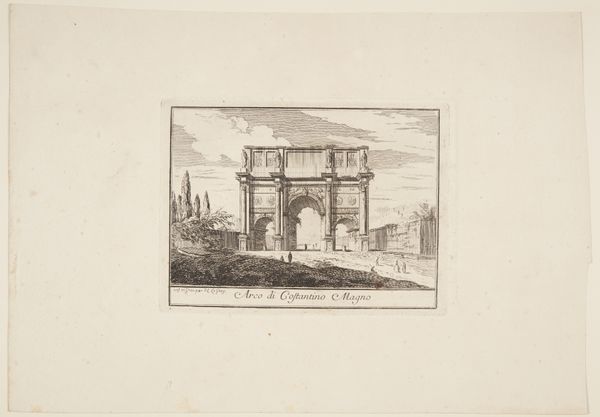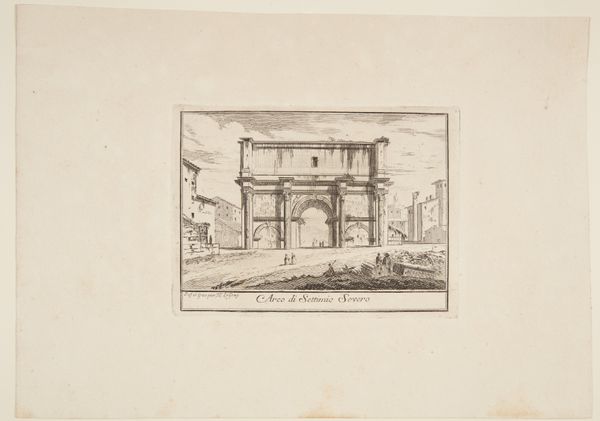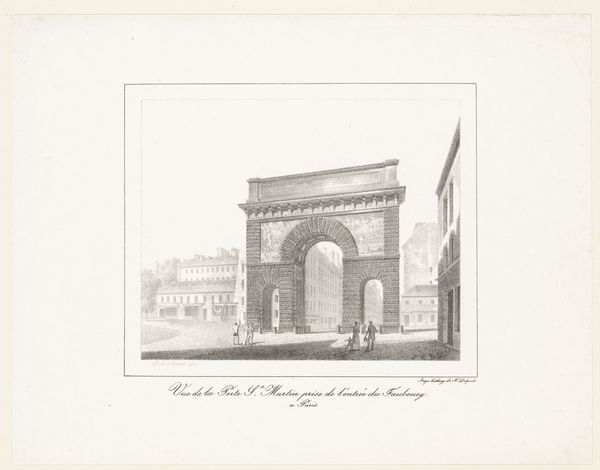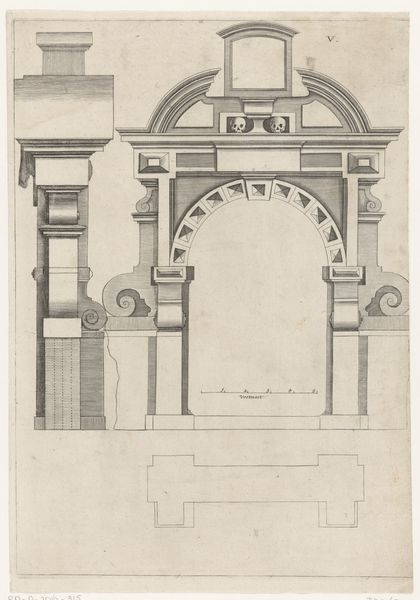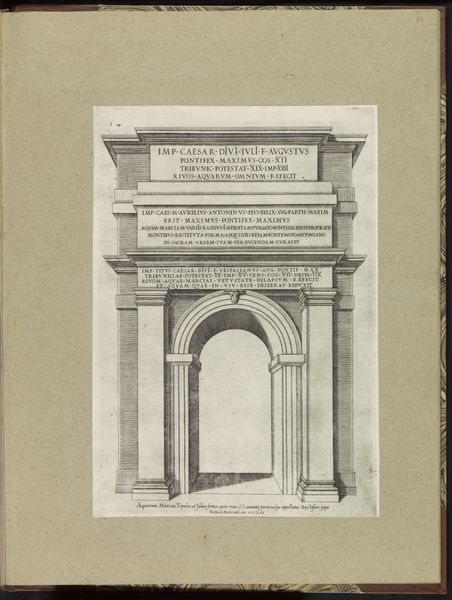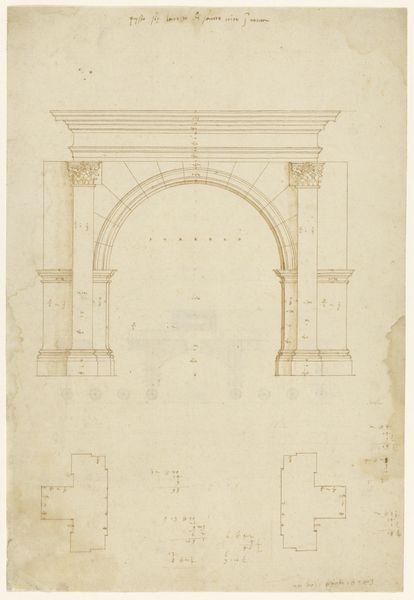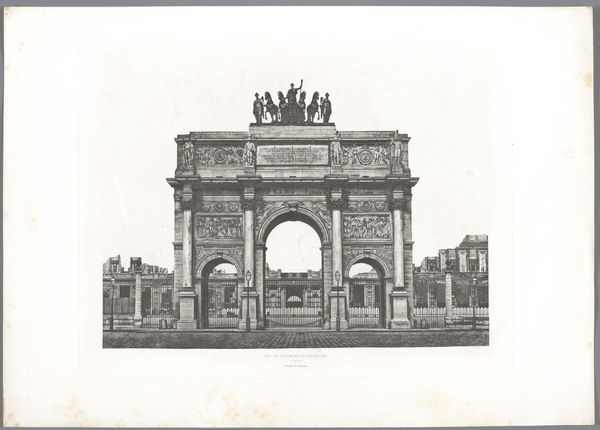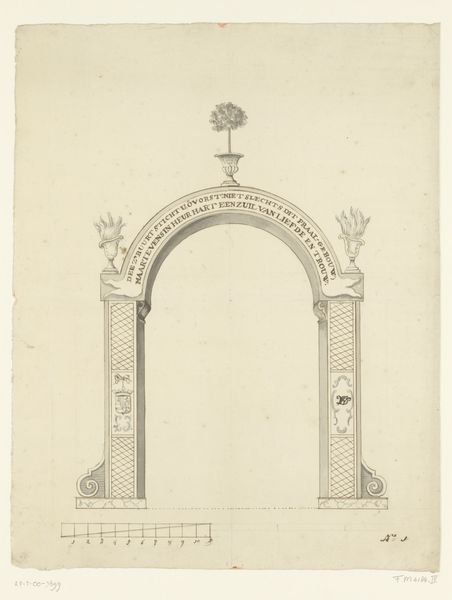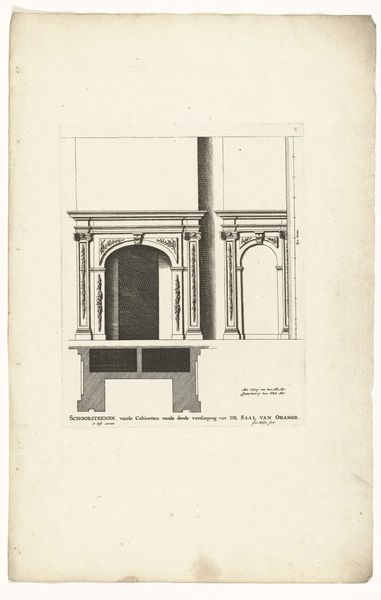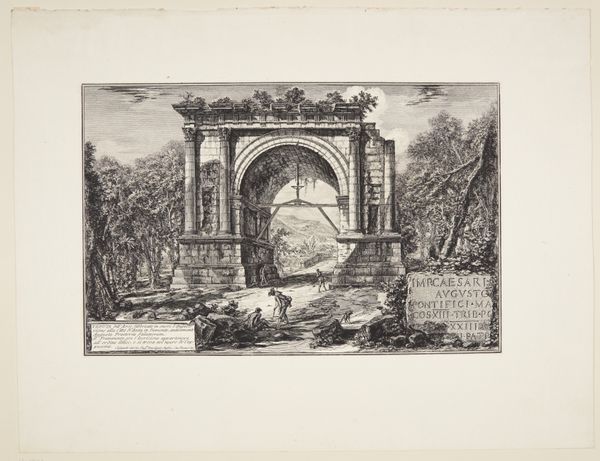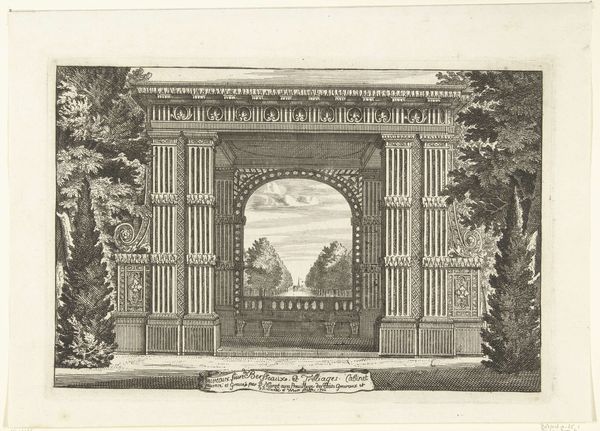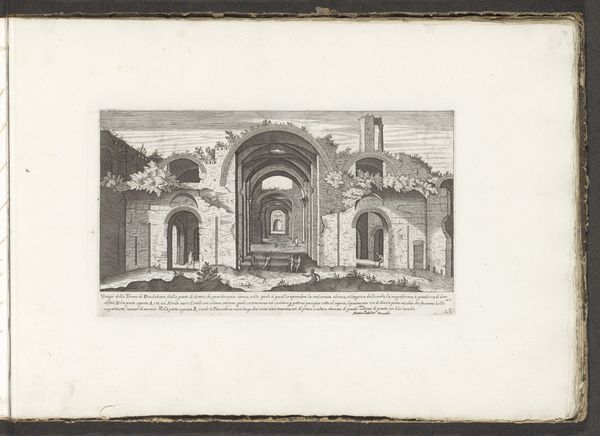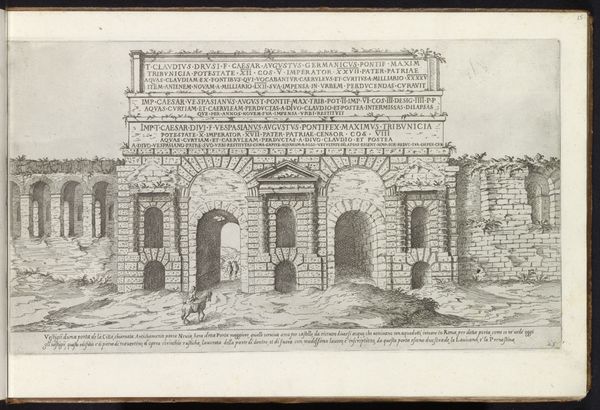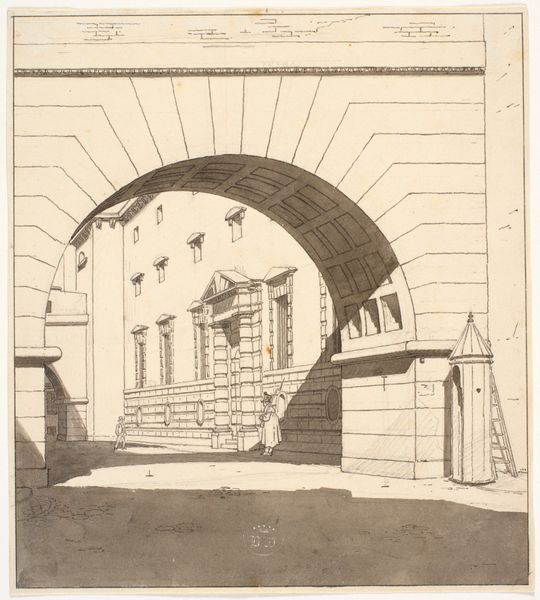
graphic-art, print, etching, engraving, architecture
#
graphic-art
#
neoclacissism
# print
#
etching
#
etching
#
engraving
#
architecture
Dimensions: 593 mm (height) x 445 mm (width) (bladmaal), 340 mm (height) x 245 mm (width) (plademaal)
This "Elevation and plan of Porta S. Lorenza" was made by Giovanni Battista Piranesi, using etching, a printmaking technique. It’s a good example of how the material processes used to create an image can strongly influence its aesthetic effect, and even its social impact. With etching, a metal plate is coated in wax, and then the artist scratches an image into the wax, exposing the metal beneath. Acid is then applied, which bites into the exposed metal. The plate is then inked and printed. The resulting image, which you can see here, has a distinctive graphic quality, defined by fine, precise lines. Piranesi employed these qualities to great effect, meticulously documenting Roman architecture. He worked at a time when the city was being rediscovered as a destination for wealthy Europeans. His prints became highly sought-after souvenirs, and he was very productive. These precise etchings not only captured the grandeur of Roman architecture, but also fueled a burgeoning tourist economy.
Comments
No comments
Be the first to comment and join the conversation on the ultimate creative platform.
